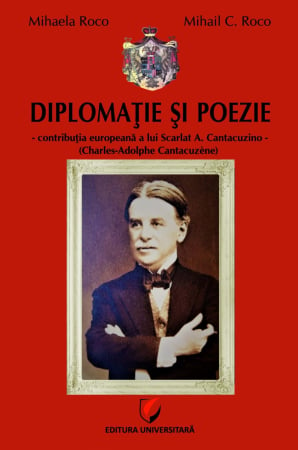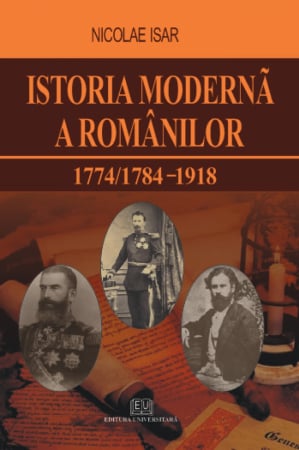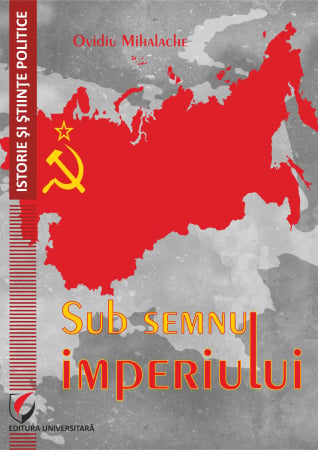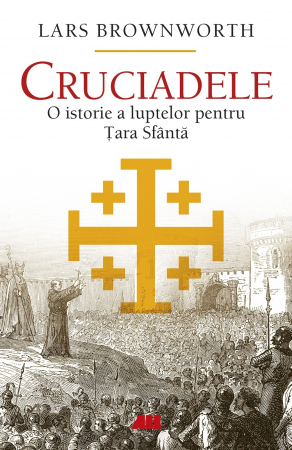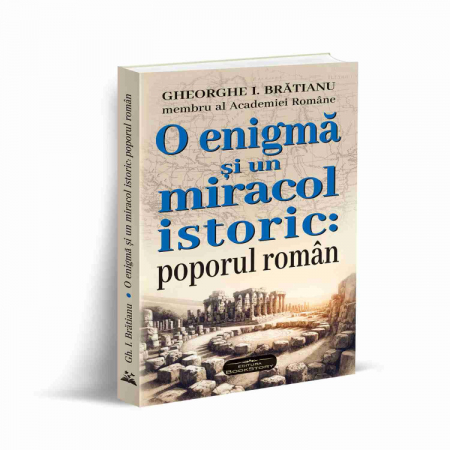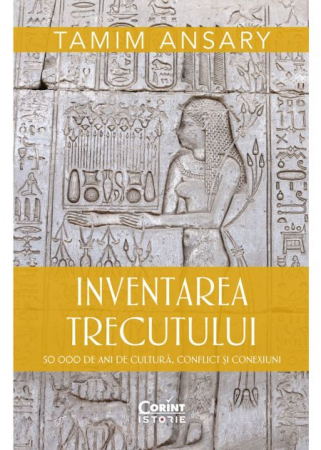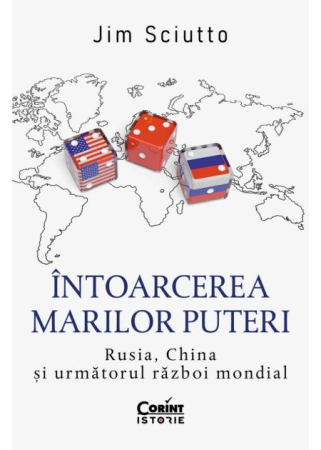ISBN: 978-606-28-0022-2
DOI: 10.5682/9786062800222
Publisher year: 2014
Edition: I
Pages: 336
Publisher: Editura Universitară
Author: Adriana-Claudia Citeia
- Authors
- Content
- More details
- Reviews (0)
INTRODUCTION / 9
CHAPTER I
Sources of modern individualism / 18
I. A. Epistrophe, metanoia, katabasis, anakainosis- directions of self-concern / 21
I. B. The archetype of identity metamorphosis in premodern thinking / 28
I. C. Self-exploration and alienation as iter ad Paradisum / 35
I. D. Parepidemia / 39
I. E. Metairesis / 45
I. F. Self-perimeter and insularization / 45
I. G. Epektasis / 47
I. H. Theosis / 48
I. I. Xeniteea / 50
I. J. Solitude and peregrinatio in stability / 54
I. K. The limits of parepidemic identity. Wisdom and stupidity / 55
I. L. Ubi sunt? Contemptus mundi si vanitas vanitatum - în literatura parepidemica medievala / 56
I. M. Centauric identity in medieval literature / 58
INTO THE. Paradise - a landmark of identity geography in Western and Byzantine Europe / 66
CHAPTER II
Metamorphoses of identity in the work of Pico della Mirandolla: Oratio de hominis dignitate / 73
II. A. Imitatio si ingenuitas în Oratio de hominis dignitate / 73
II. B. The individual in the mundi scene / 88
II. C. Metamorphosis according to will- ethelotrepta and will at Pico / 129
CHAPTER III
Identity dissociation and reconstruction of subjective space: Sebastian Brandt and Erasmus of Rotterdam / 136
III. A. The philosophical otherness and the possibilities of constructing the Human existence / 136
III. B. Dissociation of identity in the moral space of exclusion (Sebastian Brandt. Erasmus of Rotterdam) / 141
III. C. Fictionalization of identity and multiple identity / 184
CHAPTER IV
The metamorphoses of the Danaidic philosopher: Michel de Montaigne / 204
IV. A. Imagination and metamorphosis in the Montaign Essays / 204
IV. B. Polyphemical individualism / 241
IV. C. Rear shop if round room / 263
IV. D. The notion of prudence in Essays / 267
IV. E. Familiarization with death and thanatic metamorphosis / 271
IV. F. Montaigne and the "true philosophers" / 276
FINAL CONSIDERATIONS AND PERSPECTIVES / 288
ABSTRACT / 294
SUMMARY / 315
BIBLIOGRAPHY / 325
The work "Metamorphoses of identity in European political-philosophical thinking" aims to analyze individual identity, following the ways of redefining it, with the assault of modern thinking on medieval thinking, the deconstruction of essential individual identity, focused on the self-divinity or self-self from the medieval period, and the reconstruction of a multiple identity, in the modern period. The study of the relationship between individualism and loneliness is necessary to understand the individual-community relationship in the post-Renaissance period.
The prehistory of the notion of identity is extremely complex, so that the analysis of the relationship between self-knowledge and self-care (between gnosis and epimeleia), the analysis of the types of metamorphosis was made following the re-signification of concepts borrowed from ancient philosophy and Christian tradition. two paradigms of thinking and the emergence of new concepts, resulting from the need for originality, philosophical autonomy.
The thesis is structured on four chapters:
Chapter I, Sources of modern individualism aims to signal changes in the meaning of concepts in ancient and medieval philosophy that indicate the directions of self-concern and announce a new type of thinking, a new way of self-definition, away from the Christian canon.
Chapter II, Metamorphoses of identity in the work of Pico della Mirandola, Oratio de hominis dignitate analyzes the transition from theological and philosophical dependence on the works of the magistrates of the past, to autonomy conditioned by an ethic of withdrawal, of loneliness. Pico's anagnost individualism is defined in the sense of detachment from dogmatic thinking, of acquaintance with philosophical schools in their chain and formulation of their own opinion. Pichian, chameleon individualism has two hypostases: that of autonomous individualism, the result of free will and the possibility of metamorphosis between the poles of ignorance and union with divine reason, and an enipostatic individualism, built around the idea of mystical union, meeting the divinity in space subjective.
Chapter III, The Dissociation of Identity and the Reconstruction of Subjective Space: Sebastian Brandt and Erasmus of Rotterdam analyze the metamorphoses of individual identity as forms of self-exploration, the search for a subjective Paradise placed outside the Christian moral space. The personifications of vices in Brandt's work and the coronation of Madness as the mistress of the world in Erasmus's work are radical forms of the assumption of identity metamorphoses by modern man. The goddess Madness and the gods of vices are the proof of the need for a subjective pantheon, of the elaboration of personal divine figures, able to replace the classical mythology, and the Christian mythology, providers of heroic models impossible to match. The trickster goddess of Madness in the Erasmian Encomion and the gods of vice in Stultifera Navis are ephemeral gods of private happiness. The reconstruction of the subjective space overlaps the mythical-religious motives of the Demiurge and his work: the individual assumes the freedom to reconstruct the inner space. Chapter IV, The Metamorphoses of the Danaid Philosopher: Michel de Montaigne analyzes the relationship between the metamorphoses of identity and imagination, but also between imagination and authenticity. To the four mentioned chapters are added the Conclusions and Bibliography containing the volumes, studies and articles consulted.

6359.png)
![Metamorphosis of Identity in European Philosophical Political Thinking [1] Metamorphosis of Identity in European Philosophical Political Thinking [1]](https://gomagcdn.ro/domains/editurauniversitara.ro/files/product/large/metamorfoze-ale-identitatii-in-gandirea-politico-filosofica-europeana-1006-547320.jpg)


